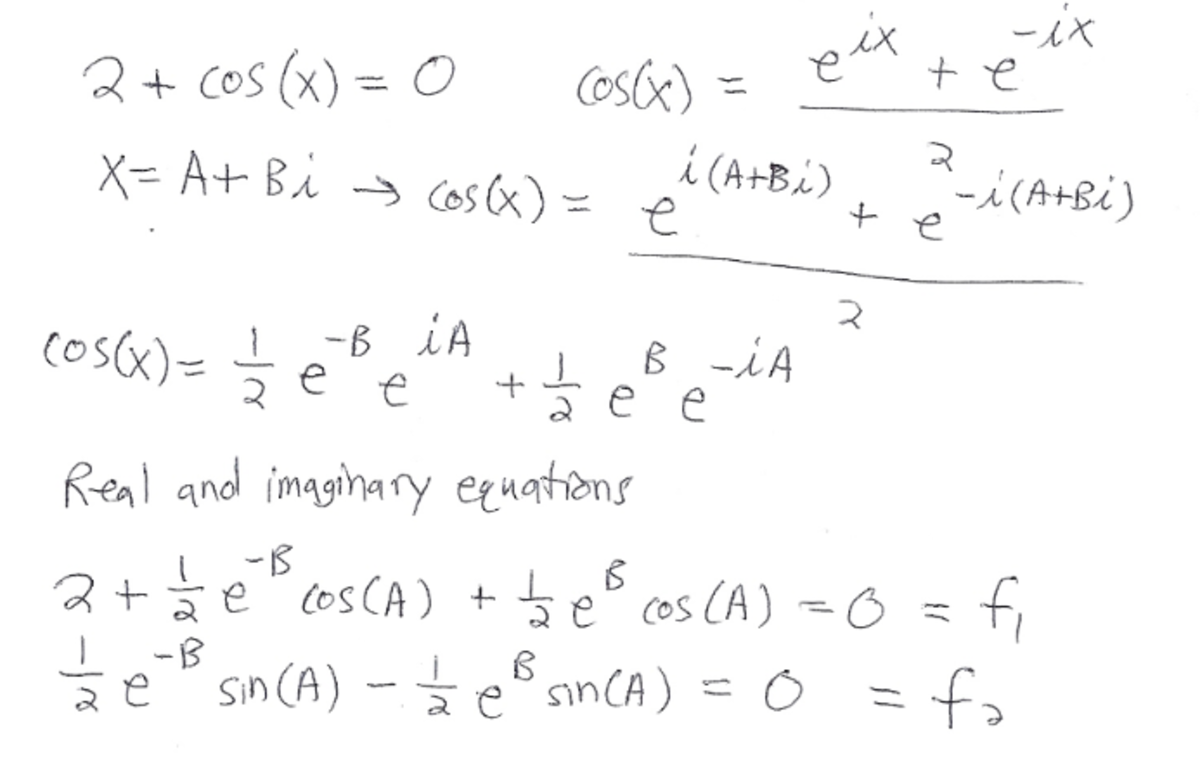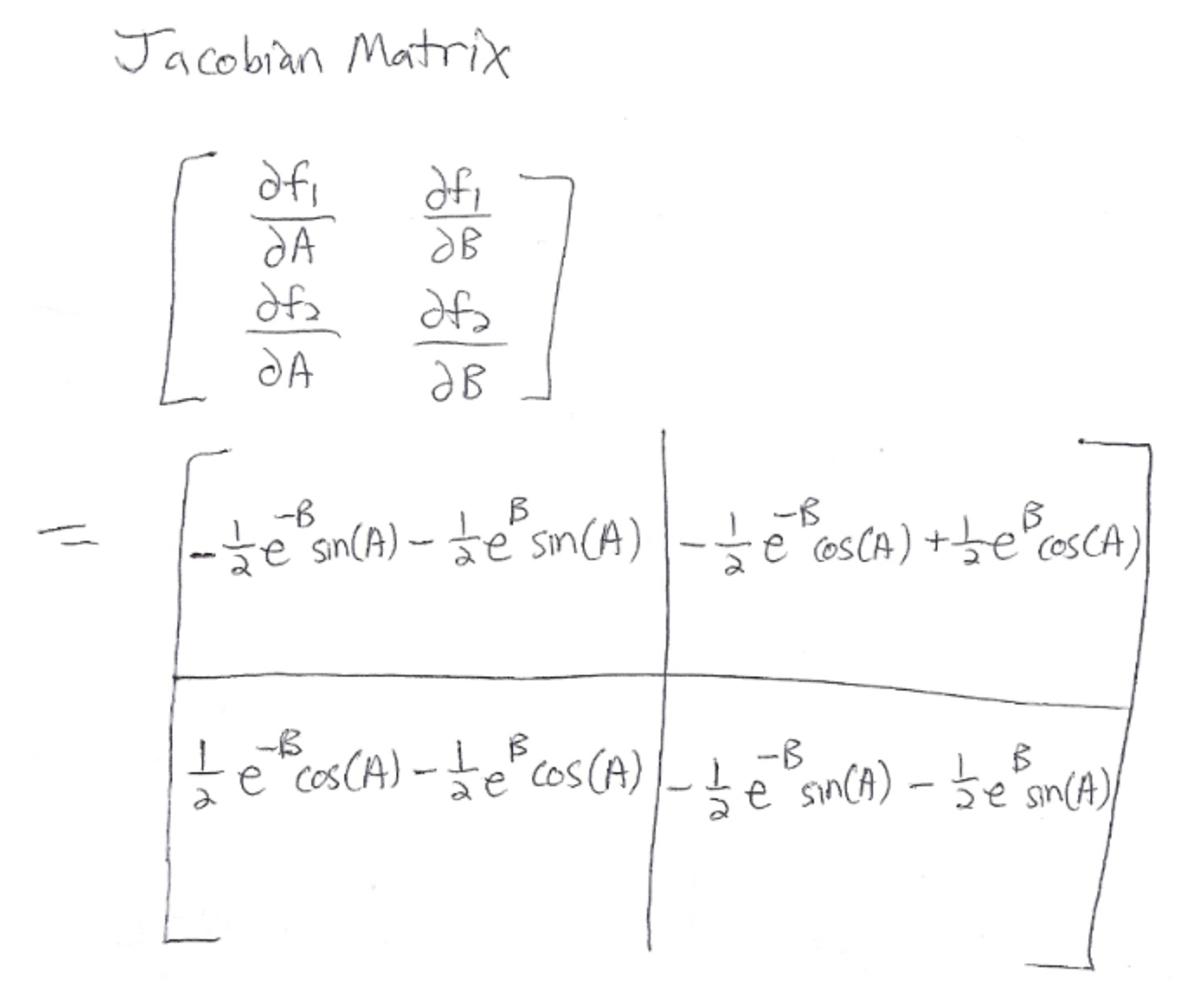To Iterate or Not to Iterate? (Part 3)
Suppose that is a complex number in general, with a form (where .
Find the solution ( to the above equation with the minimum value of .
Enter the corresponding value of to three decimal places.
The answer is 3.406.
This section requires Javascript.
You are seeing this because something didn't load right. We suggest you, (a) try
refreshing the page, (b) enabling javascript if it is disabled on your browser and,
finally, (c)
loading the
non-javascript version of this page
. We're sorry about the hassle.


It's possible to get an exact solution. I will denote the imaginay unit as j since I am an electronical engineer =D
2 e ( j ⋅ ( a + j b ) ) + e ( − j ⋅ ( a + j b ) ) + 2 = 0
e ( j a − b ) + e ( − j a + b ) = − 4
e − b ⋅ ( c o s ( a ) + j ⋅ s i n ( a ) ) + e b ⋅ ( c o s ( a ) − j ⋅ s i n ( a ) ) = − 4
Separating real and imaginary equations:
( i ) c o s ( a ) ⋅ ( e b + e − b ) = − 4
( i i ) s i n ( a ) ⋅ ( e − b − e b ) = 0
From ( i i ) , either e b = e − b , which will lead to b = 0 or s i n ( a ) = 0 , which will lead to a = k π , k ∈ Z
Pluggin b = 0 in ( i ) we will have c o s ( a ) = − 2 , which have no solution for real a . Hence, a = k π . Pluggin this in ( i ) :
( − 1 ) k ⋅ ( e b + e − b ) = − 4
Or:
( e b + e − b ) = − 4 ( k e v e n )
( e b + e − b ) = 4 ( k o d d )
Since both e b and e − b are greater than 0, the first equation cannot be true. Hence, k is odd and in order to a 2 + b 2 to be minimum, a should be equal to ± π
Substituting e b as y in the second equation, we will have y 2 − 4 y + 1 = 0 , or y = 2 ± 3
Hence, b will be equal to l n ( 2 ± 3 ) = ± 1 . 3 1 7 . . .
Substituing a as ± π and b as ± 1 . 3 1 7 . . . we have a 2 + b 2 = 3 . 4 0 6 . . .